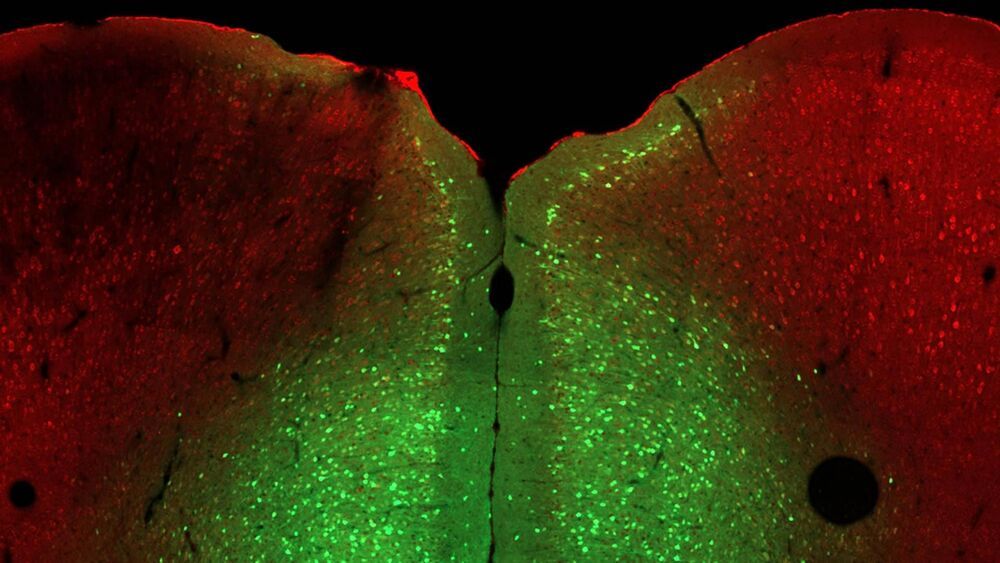The fight against gadget waste is being spurred on by new printable electronics made from wood ink.
Get the latest international news and world events from around the world.

World’s First Fully-Recyclable Electronic Transistor Produced By 3D Printers at Duke University
Engineers at Duke University have developed the world’s first fully recyclable printed electronics. Their recycling process recovers nearly 100% of the materials used—and preserves most of their performance capabilities for reuse.
By demonstrating a crucial and relatively complex computer component—the transistor—created with three carbon-based inks, the researchers hope to inspire a new generation of recyclable electronics.
“Silicon-based computer components are probably never going away, and we don’t expect easily recyclable electronics like ours to replace the technology and devices that are already widely used,” said Aaron Franklin, the Addy Professor of Electrical and Computer Engineering at Duke. “But we hope that by creating new, fully recyclable, easily printed electronics and showing what they can do, that they might become widely used in future applications.”

Black hole jets bent by magnetic fields
Observational evidence of cosmic magnetic fields in a galaxy cluster.
If the authors’ interpretation is correct, it is a remarkable finding, because it implies that relatively strong, ordered magnetic fields (of a few tens of microgauss in strength) exist in the highly disrupted environments of galaxy clusters such as Abell 3376. For comparison, relatively weak magnetic fields (of a few microgauss) have been detected13 in the gas at the centres of clusters less disrupted than Abell 3376. So far, it has proved extremely challenging to detect and measure magnetic fields in clusters and in the space between galaxies, and the origin of cosmic magnetic fields is still mysterious. Consequently, any observational evidence for such fields in cluster environments is valuable.
However, there is another plausible explanation for the bent jets, referred to as the slingshot model. In this scenario, MRC 0600‑399 and the nearby radio galaxy are falling back towards the centre of Abell 3376 after being ejected from the centre at supersonic speed. The radio jets of MRC 0600‑399 are bent simply by the pressure of gaseous wind acting in the opposite direction to the galaxy’s motion. Although this alternative model can explain the bent jets, it cannot account for the peculiar double-scythe structures, which suggest that the jets are interacting with a layer of strong, ordered magnetic fields. One limitation of the current work is that the magnetic-field strength in the jet-interaction region was not measured directly but was obtained from numerical simulations.
The most exciting aspect of Chibueze and colleagues’ finding is that the observations of radio jets from SMBHs in galactic centres might help to explain poorly understood processes involving gas dynamics in galaxy-cluster formation. Sensitive measurements of the polarization of radio waves could confirm the strength and ordering of the magnetic fields in the magnetic boundary layer. Moreover, the discovery of other examples of strongly distorted radio jets might enable scientists to, for example, measure the total energy injected into jets by SMBHs, understand the role of magnetic fields in jet stabilization and determine the magnetic-field strength of the gas inside clusters. In the upcoming years, the most sensitive radio telescopes ever built will reveal many spectacular processes in the Universe that cannot be seen using optical instruments.

In the emptiness of space, Voyager 1 detects plasma ‘hum’
Voyager 1—one of two sibling NASA spacecraft launched 44 years ago and now the most distant human-made object in space—still works and zooms toward infinity.
The craft has long since zipped past the edge of the solar system through the heliopause—the solar system’s border with interstellar space —into the interstellar medium. Now, its instruments have detected the constant drone of interstellar gas (plasma waves), according to Cornell University-led research published in Nature Astronomy.
Examining data slowly sent back from more than 14 billion miles away, Stella Koch Ocker, a Cornell doctoral student in astronomy, has uncovered the emission. “It’s very faint and monotone, because it is in a narrow frequency bandwidth,” Ocker said. “We’re detecting the faint, persistent hum of interstellar gas.”

In a first, researchers may have just detected background ‘hum’ of the Universe
If you are a space enthusiast, there is some good news for you. In a new research, that could possibly open doors to many unknown aspects of the Universe, researchers have detected a resonant “hum” produced by the gravitational waves in the Universe. Experts say this can be imagined as a gravitational wave background of the Universe.
This hum of the Universe was reportedly detected by the North American Nanohetz Observatory for Gravitational Waves (NANOGrav), and the findings of the research was published in The Astrophysical Journal Letters.
In a report, ScienceAlert said this gravitational wave background can be imagined as “something like the ringing left behind by massive events throughout our Universe’s history”.
17 Best Longevity Conferences and Events for 2021
We’ve updated our list of top longevity conferences and events for 2021, adding 4 new ones and removing 3 that are no longer happening:
Update 5/10/2021: This post has been updated since we originally published it in August 2020. Several new longevity conferences have been added and several which are no longer happening have been removed.
Affiliate Disclaimer: Longevity Advice is reader-supported. When you buy something using links on our site, we may earn a few bucks.
Usually, when you approach a random stranger and immediately begin talking about things like DNA methylation rates and NAD+ precursors, you’re lucky if all you get is a weird look.

Hydrogen combustion, explained
Circa 2020
Today’s internal combustion engines in aircraft can be modified to run on alternative fuels for improved environmental performance. Now, hydrogen combustion—either via gas or liquid—is emerging as one of the most promising options in this respect. Airbus is exploring the technology’s potential in preparation for its zero-emission aircraft programme.


Here’s a cool green way to upcycle millions of old tires
EcoTech Recycling’s patented thermodynamic process turns waste rubber into a nontoxic synthetic material for new tires, auto parts and insulation.
If you’ve ever seen a tire graveyard piled high with trashed rubber, you can easily understand that Israeli company EcoTech Recycling has a green gem of an idea.
EcoTech’s nontoxic process produces a unique material, Active Rubber (AR), from end-of-life tires. With1.6 billion tires manufactured annually, and 290 million tires discarded each year in the United States alone, tires are the world’s largest source of waste rubber.
“Rubber is a valuable commodity, and we are making it reusable,” says CEO and President Gideon Drori.

Reversing a Genetic Cause of Poor Stress Tolerance
Stress management.
Everyone faces stress occasionally, whether in school, at work, or during a global pandemic. However, some cannot cope as well as others. In a few cases, the cause is genetic. In humans, mutations in the OPHN1 gene cause a rare X-linked disease that includes poor stress tolerance. Cold Spring Harbor Laboratory (CSHL) Professor Linda Van Aelst seeks to understand factors that cause specific individuals to respond poorly to stress. She and her lab studied the mouse gene Ophn1, an analog of the human gene, which plays a critical role in developing brain cell connections, memories, and stress tolerance. When Ophn1 was removed in a specific part of the brain, mice expressed depression-like helpless behaviors. The researchers found three ways to reverse this effect.
To test for stress, the researchers put mice into a two-room cage with a door in between. Normal mice escape from the room that gives them a light shock on their feet. But animals lacking Ophn1 sit helplessly in that room without trying to leave. Van Aelst wanted to figure out why.
Her lab developed a way to delete the Ophn1 gene in different brain regions. They found that removing Ophn1 from the prelimbic region of the medial prefrontal cortex (mPFC), an area known to influence behavioral responses and emotion, induced the helpless phenotype. Then the team figured out which brain circuit was disrupted by deleting Ophn1, creating overactivity in the brain region and ultimately the helpless phenotype.